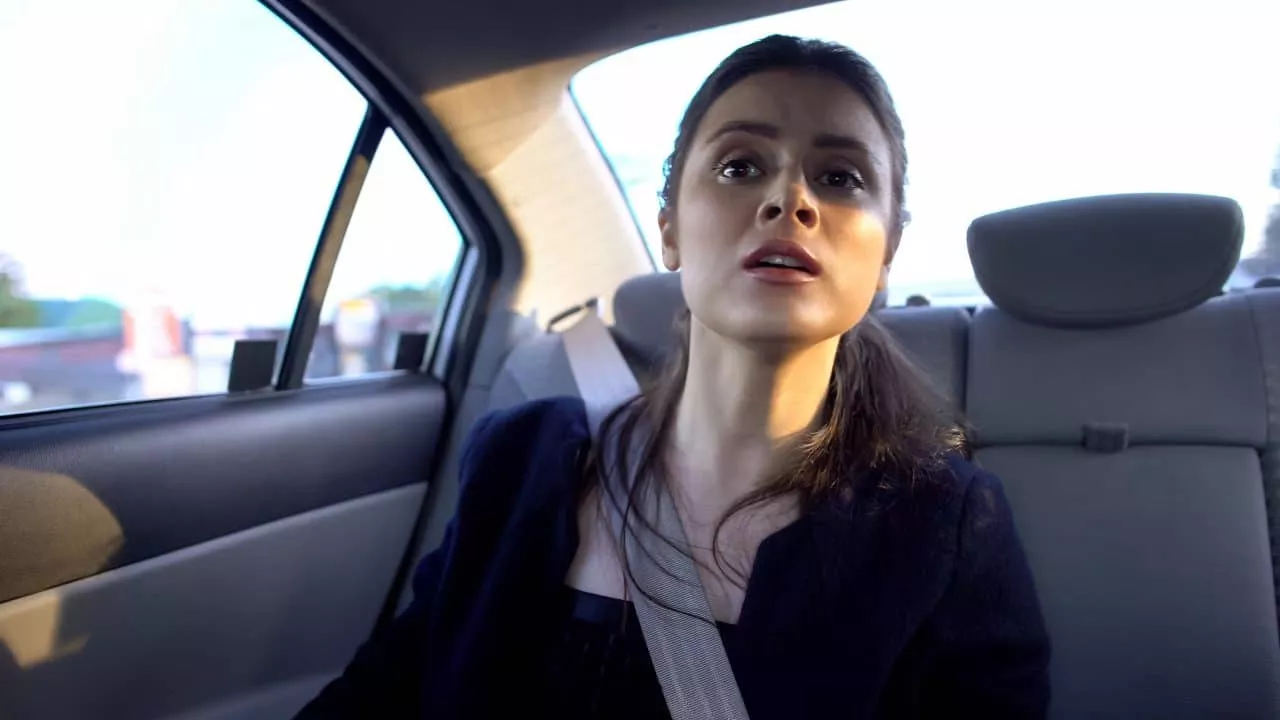
We’re Here for You
Contact Us for a Free Case Evaluation
Our team is ready to listen day or night – 7 days a week, so contact us now to see how we can help you on the road to recovery.

Many people enjoy the convenience of Uber and Lyft, but how do Virginia laws protect us if we are injured in a Uber car accident or a Lyft car accident? For example, what happens if the Toyota Camry that we are about to get into gets clipped as the driver pulls out into traffic and as a result herniates a disc in our neck? Or, what if you are a Lyft driver, and you get broadsided on your way to pick up a passenger?
The Virginia General Assembly has provided an answer. Beginning in 2015, Virginia has attempted to enact protections for individuals riding with these “new” digital platform transportation services provided by companies that are similar to, yet different from the protections provided for decades to passengers of common carriers. A “Transportation Network Company” (TNC) is defined by Virginia law as a person (i.e., company; e.g., Lyft, Uber) who provides prearranged rides using a digital platform that connects passengers with TNC partners – that is the guy driving the Camry. The Code section governing TNCs (Title 46.2, Chapter 20, Article 15) begins with establishing the ground rules. First, the statute requires that all ride services go through the licensed corporate platform (app).
“A transportation network company and a TNC partner shall provide passenger transportation only on a prearranged basis and only by means of a digital platform that enables passengers to connect with TNC partners using a TNC partner vehicle. No TNC partner shall transport a passenger unless a transportation network company has matched the TNC partner to that passenger through the digital platform. A TNC partner shall not provide transportation in any other manner. A TNC partner shall not solicit, accept, or arrange transportation except through a transportation network company’s digital platform or through a TNC broker.” Code 46.2-2099.48(A)
Secondly, the statute requires the TNC to provide accountability and the ability to report a dangerous TNC driver:
A transportation network company shall publish the following information on its public website and associated digital platform*:
*Code 46.2-2099.48(D)
TNCs are prohibited from discriminating against riders with disabilities:
A transportation network company shall provide passengers an opportunity to indicate whether they require a wheelchair-accessible vehicle. If a transportation network company cannot arrange wheelchair-accessible service in a TNC partner vehicle in any instance, it shall direct the passenger to an alternate provider of wheelchair-accessible service, if available.
A transportation network company shall not impose additional charges for providing services to persons with disabilities because of those disabilities.
Code 46.2-2099.48(K)
TNC drivers may refuse service to “disorderly” passengers. See Code 46.2-2099.48(K)
TNCs are required to screen TNC partners (drivers):
2. Before authorizing an individual to act as a TNC partner, and at least once annually after authorizing an individual to act as a TNC partner, a transportation network company shall obtain and review a driving history research report on that person from the individual’s state of licensure.
3. Before authorizing an individual to act as a TNC partner, and at least once every two years after authorizing a person to act as a TNC partner, a transportation network company shall verify that the person is not listed on the Sex Offender and Crimes Against Minors Registry or on the U.S. Department of Justice’s National Sex Offender Public Website.
C. A transportation network company shall not authorize an individual to act as a TNC partner if the criminal history records check required under subsection B reveals that the individual:
1. Is a person for whom registration with the Sex Offender and Crimes Against Minors Registry is required pursuant to Chapter 9 (u00a7 9.1-900 et seq.) of Title 9.1 or is listed on the U.S. Department of Justice’s National Sex Offender Public Website;
2. Has ever been convicted of or has ever pled guilty or nolo contendere to a violent felony offense as listed in subsection C of u00a7 17.1-805, or a substantially similar law of another state or of the United States;
3. Within the preceding seven years has been convicted of or has pled guilty or nolo contendere to any of the following offenses, either under Virginia law or a substantially similar law of another state or of the United States: (i) any felony offense other than those included in subdivision 2; (ii) an offense under u00a7 18.2-266, 18.2-266.1, 18.2-272, or 46.2-341.24; or (iii) any offense resulting in revocation of a driver’s license pursuant to u00a7 46.2-389 or 46.2-391; or
4. Within the preceding three years has been convicted of or has pled guilty or nolo contendere to any of the following offenses, either under Virginia law or a substantially similar law of another state or of the United States: (i) three or more moving violations; (ii) eluding a law-enforcement officer, as described in u00a7 46.2-817; (iii) reckless driving, as described in Article 7 (u00a7 46.2-852 et seq.) of Chapter 8; (iv) operating a motor vehicle in violation of u00a7 46.2-301; or (v) refusing to submit to a chemical test to determine the alcohol or drug content of the person’s blood or breath, as described in u00a7 18.2-268.3 or 46.2-341.26:3.
D. A transportation network company shall employ a zero-tolerance policy with respect to the use of drugs and alcohol by TNC partners and shall include a notice concerning the policy on its website and associated digital platform.
Code 46.2-2099.49
All TNCs operating in Virginia are required by law to have minimum insurance coverages issued by a licensed insurance carrier and to disclose that insurance coverage to their drivers. TNCs operating in Virginia are required to have liability, uninsured motorist, and underinsured motorist coverage while operating a TNC partner vehicle (e.g., the Camry) and to provide proof of insurance to anyone involved in an accident that occurs during the operation of the vehicle. The TNC is responsible for the driver complying with this requirement. See Code 46.2-2099.48(E & F).
So, what is the insurance coverage on a TNC vehicle? As of 2016, Virginia law requires a minimum of $1 MILLION in liability and UM/UIM coverage while the vehicle is being used “in connection with the TNC’s digital platform.” This means that from the moment a passenger enters the vehicle until the passenger exits the vehicle, the $1 million minimum coverage applies. Code 46.2-2099.52. So, if Johnny runs a red light and slams into the vehicle occupied by Jenny (Uber driver) and Lenny (passenger), there is at least $1 million available in UM/UIM coverage in the aggregate to split between Little Jenny and Little Lenny for their injuries. If Benny and Joon are also passengers, the coverage is split between all four occupants of the vehicle.
If all of this sounds confusing, you are not alone. Often, when a wreck happens, whether this coverage applies instead of that coverage can vary, especially in situations involving TNC vehicles. In certain situations, the TNC coverage may not apply at all, but rather the underlying liability or UM coverage on the driver’s vehicle.
Why not ask the experts, the car accident lawyers of Rutter Mills, who know the law and have experience in handling many cases involving TNC and other types of coverage?
A Rutter Mills case is a serious case. It may mean you have been badly injured. It certainly means you have a lot on the line, and the resolution of your case will make a big difference to you, your family, and your life moving forward.
Contact Us for a Free Case Evaluation
Our team is ready to listen day or night – 7 days a week, so contact us now to see how we can help you on the road to recovery.
